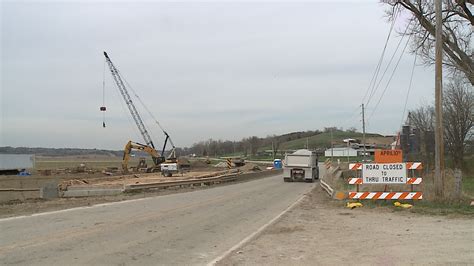
Kash Patel, a former Trump administration official, has filed a lawsuit against Frank Figliuzzi, an MSNBC commentator and former FBI official, alleging defamation over claims that Patel “fabricated” a story related to the investigation of alleged Russian interference in the 2016 election.
Patel’s lawsuit, filed in a New York court, centers on statements Figliuzzi made during an MSNBC appearance in June 2023. According to the complaint, Figliuzzi falsely stated that Patel “fabricated” a story he told to Congress, implying Patel committed perjury and obstructed justice. The lawsuit seeks compensatory and punitive damages, alleging that Figliuzzi’s statements were made with malice and caused significant harm to Patel’s reputation.
“Figliuzzi knowingly and maliciously made false and defamatory statements about Mr. Patel, accusing him of fabricating a story he told Congress, which is tantamount to accusing him of perjury and obstruction of justice,” the lawsuit states. Patel contends that Figliuzzi’s remarks were not based on facts and were intended to damage his credibility and professional standing.
The suit underscores the ongoing legal and political fallout from investigations into Russian interference in the 2016 election and the subsequent efforts to investigate the origins of those investigations. Patel played a significant role in these investigations, particularly in his efforts to declassify documents related to the surveillance of Trump campaign associate Carter Page.
Background of the Lawsuit
The core of Patel’s grievance stems from comments made by Figliuzzi during a broadcast on MSNBC. The lawsuit specifically targets statements in which Figliuzzi accused Patel of fabricating a story during his testimony before Congress. These claims, Patel asserts, are demonstrably false and were made with reckless disregard for the truth.
Patel’s legal team argues that Figliuzzi’s statements directly attacked Patel’s integrity and professional reputation. They contend that Figliuzzi’s remarks were not simply expressions of opinion but were presented as factual assertions that could be proven false. The lawsuit also highlights that Figliuzzi, as a former FBI official, carries significant credibility with the public, which amplified the impact of his allegedly defamatory statements.
The lawsuit details the specific statements made by Figliuzzi that Patel claims are defamatory. According to the court documents, Figliuzzi stated that Patel had “fabricated” a story and presented it to Congress. Patel’s legal team argues that this statement implies that Patel committed a crime, namely perjury, which is a serious offense that carries significant legal consequences.
Furthermore, the lawsuit alleges that Figliuzzi’s statements were made with malice. In legal terms, malice means that the defendant knew the statements were false or acted with reckless disregard for whether they were true or false. Patel’s legal team argues that Figliuzzi, given his background and experience, should have known that his statements were false or should have taken steps to verify the accuracy of his claims before making them publicly.
Patel’s lawsuit also focuses on the impact of Figliuzzi’s statements on his professional and personal life. The lawsuit claims that Patel has suffered significant reputational damage as a result of Figliuzzi’s comments. It argues that Patel’s ability to pursue future employment opportunities has been harmed and that he has experienced emotional distress as a result of the allegedly defamatory statements.
Patel’s Role in the Russia Investigation
Kash Patel’s involvement in the investigation of Russian interference in the 2016 election is central to understanding the context of the lawsuit. During his time working for Congressman Devin Nunes on the House Intelligence Committee, Patel played a key role in investigating the origins of the FBI’s investigation into alleged collusion between the Trump campaign and Russia.
Patel’s supporters claim that he was instrumental in uncovering what they believe to be abuses of power by the FBI and other intelligence agencies. They argue that Patel’s efforts to declassify documents related to the surveillance of Carter Page were essential to exposing these alleged abuses.
However, Patel’s critics contend that he was actively working to undermine the Russia investigation and protect then-President Trump. They argue that Patel cherry-picked information and misrepresented facts in order to create a false narrative about the origins of the investigation.
Patel’s involvement in the declassification of documents related to the Russia investigation has been particularly controversial. These documents included applications for surveillance warrants targeting Carter Page, as well as other sensitive intelligence information. Patel’s supporters argue that the declassification of these documents was essential to transparency and accountability. However, critics argue that it compromised national security and undermined the ongoing investigation.
Frank Figliuzzi’s Response
As of the time of this rewrite, Frank Figliuzzi has not issued a formal statement in response to the lawsuit. Attempts to reach Figliuzzi or his representatives for comment have been unsuccessful. It is expected that Figliuzzi will file a response to the lawsuit in court, in which he will outline his defense against Patel’s claims.
Figliuzzi’s legal team will likely argue that his statements were protected by the First Amendment, which guarantees freedom of speech. They may argue that his comments were expressions of opinion based on publicly available information and that he did not act with malice.
Figliuzzi’s defense may also focus on the context in which his statements were made. His legal team may argue that his comments were part of a broader discussion about the Russia investigation and that they were not intended to be taken as factual assertions.
Legal and Political Implications
The lawsuit between Kash Patel and Frank Figliuzzi has significant legal and political implications. Legally, the case will test the limits of free speech and the extent to which individuals can be held liable for making defamatory statements about public figures. The outcome of the case could have a chilling effect on public discourse, particularly in the context of political debates.
Politically, the lawsuit underscores the deep divisions that remain in American society over the Russia investigation and the Trump presidency. The case is likely to further inflame partisan tensions and contribute to the ongoing polarization of American politics.
The lawsuit also highlights the challenges of holding individuals accountable for making false or misleading statements in the media. In an era of social media and 24-hour news cycles, it has become increasingly difficult to separate fact from fiction. The lawsuit serves as a reminder of the importance of responsible journalism and the need for individuals to be held accountable for their words.
The case could also have implications for the media landscape. If Patel is successful in his lawsuit, it could encourage other public figures to sue media outlets and commentators for making allegedly defamatory statements. This could lead to a more cautious and less critical media environment.
Expert Analysis
Legal experts have weighed in on the lawsuit, offering insights into the potential outcomes and the legal principles at stake. Many experts agree that the case will be difficult to win for Patel, given the high legal standard for proving defamation against a public figure.
“To win a defamation case, a public figure like Patel has to prove that the defendant made false statements with actual malice,” explained a First Amendment lawyer. “This means showing that the defendant knew the statements were false or acted with reckless disregard for the truth.”
Other experts have noted that the lawsuit could serve as a form of strategic litigation against public participation (SLAPP suit). SLAPP suits are often filed to intimidate and silence critics, rather than to win a legal victory. “Even if Patel doesn’t win the case, the lawsuit could have a chilling effect on Figliuzzi and other commentators,” said a media law professor. “It could make them more hesitant to criticize Patel or other public figures in the future.”
Broader Context of Defamation Law
The lawsuit between Kash Patel and Frank Figliuzzi also raises broader questions about defamation law in the United States. Defamation law is designed to protect individuals from false statements that harm their reputation. However, it also must be balanced against the First Amendment, which protects freedom of speech.
In the United States, there are two types of defamation: libel and slander. Libel refers to defamatory statements that are written or published, while slander refers to defamatory statements that are spoken.
To win a defamation case, a plaintiff must prove several elements: that the defendant made a false statement of fact, that the statement was published to a third party, that the statement was defamatory, and that the plaintiff suffered damages as a result of the statement.
Public figures face a higher burden of proof in defamation cases than private individuals. Public figures must prove that the defendant acted with actual malice, meaning that the defendant knew the statement was false or acted with reckless disregard for the truth. This higher standard is designed to protect freedom of speech and to prevent public figures from using defamation lawsuits to silence their critics.
The Future of the Lawsuit
The lawsuit between Kash Patel and Frank Figliuzzi is still in its early stages. It is likely that the case will take several months, or even years, to resolve. The next step in the process will be for Figliuzzi to file a response to the lawsuit. After that, the parties will engage in discovery, which involves gathering evidence and taking depositions.
It is possible that the case could be settled out of court. However, if the parties are unable to reach a settlement, the case will proceed to trial. At trial, a judge or jury will hear evidence and decide whether Figliuzzi defamed Patel.
The outcome of the lawsuit could have significant implications for both Patel and Figliuzzi, as well as for the broader media landscape. The case will be closely watched by legal experts, journalists, and political observers.
Deep Dive into Specific Allegations
The lawsuit filed by Kash Patel provides a detailed account of the specific statements made by Frank Figliuzzi that Patel claims are defamatory. According to the court documents, Figliuzzi made the allegedly defamatory statements during an appearance on MSNBC in June 2023.
In the lawsuit, Patel’s legal team breaks down each statement that they allege is defamatory. Each statement is then contextualized to show the negative impact and the false implications of Figliuzzi’s words. They specifically target statements in which Figliuzzi accused Patel of “fabricating” a story he told to Congress, implying Patel committed perjury.
Patel’s legal team argues that these statements are demonstrably false and were made with reckless disregard for the truth. They claim that Figliuzzi presented these statements as factual assertions, which could be proven false. They provide specific examples of Patel’s testimony before Congress and argue that there is no evidence to support Figliuzzi’s claim that Patel fabricated a story.
The lawsuit also delves into the impact of Figliuzzi’s statements on Patel’s reputation. Patel argues that Figliuzzi’s comments have damaged his credibility and professional standing. The lawsuit claims that Patel has lost business opportunities and has been subjected to ridicule and criticism as a result of Figliuzzi’s statements.
Analysis of Potential Defenses
Frank Figliuzzi and his legal team have several potential defenses available to them in this lawsuit. One of the most common defenses in defamation cases is the First Amendment, which guarantees freedom of speech. Figliuzzi could argue that his statements were protected by the First Amendment because they were expressions of opinion or were made in the context of a public debate about a matter of public concern.
Another potential defense is the fair report privilege, which protects journalists and others who report on official proceedings, such as congressional hearings, from defamation claims. Figliuzzi could argue that his statements were based on his understanding of Patel’s testimony before Congress and that he was simply reporting on those proceedings.
Figliuzzi could also argue that his statements were not defamatory because they were not false or because they did not harm Patel’s reputation. He could present evidence to support his claim that Patel’s testimony before Congress was misleading or that Patel has a history of making false statements.
The Role of Media in Defamation Cases
The lawsuit between Kash Patel and Frank Figliuzzi highlights the important role that the media plays in defamation cases. The media has a responsibility to report accurately and fairly on matters of public concern. However, the media also has a right to freedom of speech, which protects it from being sued for defamation unless it acts with actual malice.
In this case, MSNBC, the network that broadcast Figliuzzi’s allegedly defamatory statements, could also face legal liability. Patel could argue that MSNBC is vicariously liable for Figliuzzi’s statements because it allowed him to use its platform to spread false and defamatory information.
MSNBC could defend itself by arguing that it was not aware that Figliuzzi’s statements were false or that it took reasonable steps to ensure the accuracy of his statements. The network could also argue that it is protected by the First Amendment because it was simply providing a forum for public debate.
The lawsuit between Kash Patel and Frank Figliuzzi underscores the need for media outlets to exercise caution and diligence when reporting on controversial issues. Media outlets should take steps to verify the accuracy of the information they publish and should provide a fair and balanced perspective on all sides of the issue.
Frequently Asked Questions (FAQ)
-
What is the basis of Kash Patel’s lawsuit against Frank Figliuzzi?
Kash Patel is suing Frank Figliuzzi for defamation, alleging that Figliuzzi falsely stated on MSNBC that Patel “fabricated” a story he told to Congress related to the investigation of Russian interference in the 2016 election. Patel claims this statement implies he committed perjury and obstructed justice, causing significant damage to his reputation.
-
What is Frank Figliuzzi’s background, and how does it relate to the lawsuit?
Frank Figliuzzi is a former FBI official and current MSNBC commentator. Patel’s lawsuit emphasizes Figliuzzi’s background, arguing that his credibility as a former high-ranking law enforcement official amplified the impact of his allegedly defamatory statements.
-
What is Kash Patel’s role in the investigation of Russian interference in the 2016 election?
Kash Patel played a key role while working for Congressman Devin Nunes on the House Intelligence Committee. He investigated the origins of the FBI’s investigation into alleged collusion between the Trump campaign and Russia and was involved in the declassification of documents related to the surveillance of Carter Page. His actions have been praised by supporters as uncovering abuses of power and criticized by others as undermining the investigation.
-
What are the potential defenses Frank Figliuzzi might use in response to the lawsuit?
Figliuzzi may argue that his statements are protected by the First Amendment as expressions of opinion or as part of a public debate. He could also invoke the fair report privilege, claiming his statements were based on his understanding of Patel’s testimony before Congress. Additionally, he might argue that his statements were not defamatory or did not harm Patel’s reputation.
-
What are the potential legal and political implications of this lawsuit?
Legally, the case could test the limits of free speech and the standards for proving defamation against public figures. Politically, it highlights the ongoing divisions over the Russia investigation and the Trump presidency. The outcome could influence media coverage and public discourse on controversial issues.
In-depth Analysis of Key Legal Concepts
The lawsuit between Kash Patel and Frank Figliuzzi brings several key legal concepts into focus. Understanding these concepts is crucial for comprehending the potential outcomes and broader implications of the case.
-
Defamation: Defamation is a legal term for false statements that harm someone’s reputation. It can take two forms: libel (written defamation) and slander (spoken defamation). To win a defamation case, a plaintiff must prove that the defendant made a false statement of fact, that the statement was published to a third party, that the statement was defamatory, and that the plaintiff suffered damages as a result of the statement.
-
Actual Malice: Public figures, such as Kash Patel, face a higher burden of proof in defamation cases. They must prove that the defendant acted with “actual malice,” meaning that the defendant knew the statement was false or acted with reckless disregard for the truth. This higher standard is designed to protect freedom of speech and to prevent public figures from using defamation lawsuits to silence their critics.
-
First Amendment: The First Amendment to the United States Constitution guarantees freedom of speech. This protection is not absolute, however. There are certain types of speech that are not protected by the First Amendment, such as defamation, incitement to violence, and obscenity.
-
Fair Report Privilege: The fair report privilege protects journalists and others who report on official proceedings, such as congressional hearings, from defamation claims. This privilege allows the media to report on matters of public concern without fear of being sued for defamation, as long as the reporting is fair and accurate.
-
SLAPP Suits: SLAPP suits, or strategic lawsuits against public participation, are lawsuits that are filed to intimidate and silence critics. These lawsuits are often filed by powerful individuals or organizations against individuals who have spoken out against them. The goal of a SLAPP suit is not necessarily to win a legal victory but to harass and intimidate the defendant into silence.
The Importance of Context in Defamation Lawsuits
The context in which a statement is made is crucial in defamation lawsuits. Courts will consider the surrounding circumstances to determine whether the statement was defamatory and whether the defendant acted with actual malice.
In the case of Kash Patel and Frank Figliuzzi, the context of the statements is particularly important. Figliuzzi’s comments were made during a broadcast on MSNBC, a cable news network that often features political commentary and analysis. The comments were made in the context of a discussion about the Russia investigation, a highly controversial and politically charged topic.
A court will likely consider these factors when determining whether Figliuzzi’s statements were defamatory and whether he acted with actual malice. The court will also consider Figliuzzi’s intent and purpose in making the statements.
The Potential Impact on Media Discourse
The lawsuit between Kash Patel and Frank Figliuzzi could have a significant impact on media discourse. If Patel is successful in his lawsuit, it could encourage other public figures to sue media outlets and commentators for making allegedly defamatory statements. This could lead to a more cautious and less critical media environment.
On the other hand, if Figliuzzi is successful in defending against the lawsuit, it could send a message that the media has broad protection under the First Amendment to report on matters of public concern. This could encourage the media to be more aggressive in its reporting and commentary.
The outcome of the lawsuit will likely be closely watched by media outlets, journalists, and political observers. It could have a lasting impact on the way the media covers controversial issues and the extent to which public figures are willing to speak out on matters of public concern.
The Future of Political Discourse
The lawsuit between Kash Patel and Frank Figliuzzi is just one example of the increasing polarization of American politics. In recent years, there has been a growing tendency for individuals to demonize and attack their political opponents. This trend is fueled by social media, cable news, and other factors.
The lawsuit between Patel and Figliuzzi could further exacerbate these trends. It could encourage individuals to be more aggressive in their attacks on their political opponents. It could also lead to a more divided and contentious political environment.
It is important to remember that political discourse should be civil and respectful, even when individuals disagree on important issues. The lawsuit between Patel and Figliuzzi serves as a reminder of the importance of responsible political dialogue and the need to avoid personal attacks and defamation.
The legal battle between Patel and Figliuzzi adds another layer to the complex narrative surrounding the investigation into Russian interference in the 2016 election and the subsequent inquiries into the conduct of intelligence agencies. Its outcome will be closely scrutinized for its potential implications on free speech, media accountability, and the boundaries of political commentary.









